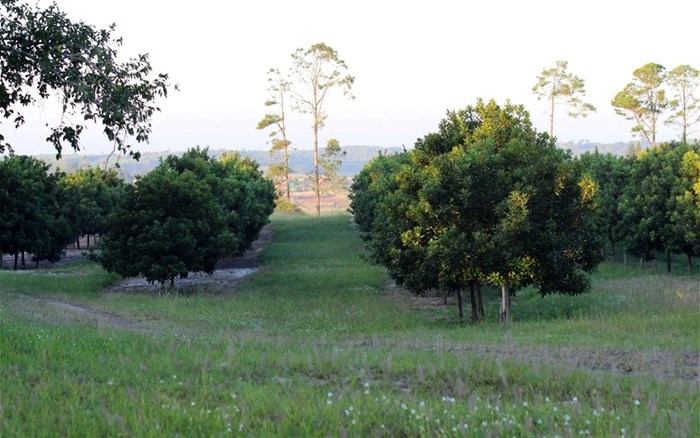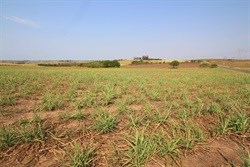A significant percentage of South Africa's small-scale farms are based in Northern KwaZulu-Natal, comprising a total of 35,833 square kilometres, where agriculture is extensively diverse as reflected in the patterns of topography and the soil fertile for the majority of agricultural activities.
Phil Hammill, Pam Golding Properties area principal in the Richards Bay area, says due to the good, reliable rainfall and fertile soils, the region's agricultural sector has become very productive and is known for its specialist capability in several types of farming. "This has resulted in considerable interest from farm buyers, with game and sugar cane farm enquiries leading the field at present and with increasing interest in timber, dairy and eco-tourism.
"The most popular areas include Ginginghlovu, Empangeni, Mtubatuba, Hluhluwe, Mkuze and Pongola with a surge in interest in the areas adjacent to the World Heritage Site of St Lucia Wetlands Park, including game parks in the vicinity. There is also keen interest in farms among small farmers, with financial support from financial institutions such as the Land Bank.
"Although this is not a cheap market, smallholdings of approximately 8 ha in size can start at R4 million, a competitive price for a property which includes bananas, nuts, chickens, eggs, hydroponics, vegetables and fruit. A successful sugar cane farm can cost up to R30 million and game farms with well-established lodges can sell for as much as R70 million. These farms are lucrative and sought after, especially those situated it the Pongola area, and can range in size from 150-250 hectares."
"A feature of the current market is a marked lack of urgency to sell, which is why prices are holding. Sales are taking place for the normal reasons of people retiring or relocating and not due to financial pressures or because they are emigrating," says Hammill.
Northern KwaZulu-Natal covers the areas north of the Tugela River, South of Mozambique, Swaziland and Mpumalanga and consists of the uThungulu, uMkhanyakude and Zululand District Municipalities. Economic activities are concentrated in the metropolitan areas of Richards Bay and Empangeni, with the coastal belts utilised for sugar cane plantations, forestry and sub-tropical fruit and vegetables. The inland areas specialise more in forestry, cattle, sheep and wildlife farming.
The agricultural sector is focused mainly on crops such as sugar and maize; horticulture - including sub-tropical fruits especially pineapples and bananas, cashew nuts, potatoes and vegetables; animal husbandry, namely beef, sheep (mutton and wool), goats, pigs and poultry; and forestry, comprising South African pine, saligna, black wattle, eucalyptus and poplar.
Significant potential for expansion
"There is tremendous potential for agricultural expansion in KwaZulu-Natal," says Hammill. It has been conservatively estimated that if the agricultural natural resources were optimally managed, the present production yield could be increased dramatically, thereby unlocking the full agricultural production potential of Northern KwaZulu-Natal.
"Driven largely by the three municipalities, ambitious plans are under way to turn this into an agro-processing hub intended to provide a demand for chillies, macadamia nuts, essential oils and bananas via black subsistence farmers."
He says further potential exists in regard to indigenous natural products derived from plants, which have been traded in the Southern African region for centuries. "The global health care trend towards alternative and natural health remedies provides a unique opportunity for the increased export of medicinal plant products from the region. However, there is a need for investment in research into commercialisation of indigenous plant products and to provide support for emerging businesses that are selling these products on the formal market.
"While dairy and cattle farming is a very important activity in Northern KwaZulu-Natal, the sugar industry is a key provider of jobs as well as the cornerstone of business development in rural areas in which sugar cane is growth. Although the quest for increasing efficiency has reduced the number of workers per ton of sugar, expansion in production has limited job losses."
He says a further factor impacting on the current market is a notable trend from commercial farming to game farming, characterised by fast growth in wildlife ranching, given the annual increase in the areas enclosed by game fences and the high demand for wildlife which is being traded privately and at wildlife auctions.
For further information, contact Pam Golding Properties Richards Bay office on 035 789 0800 or e-mail az.oc.gnidlogmap@llimmah.lihp.





























